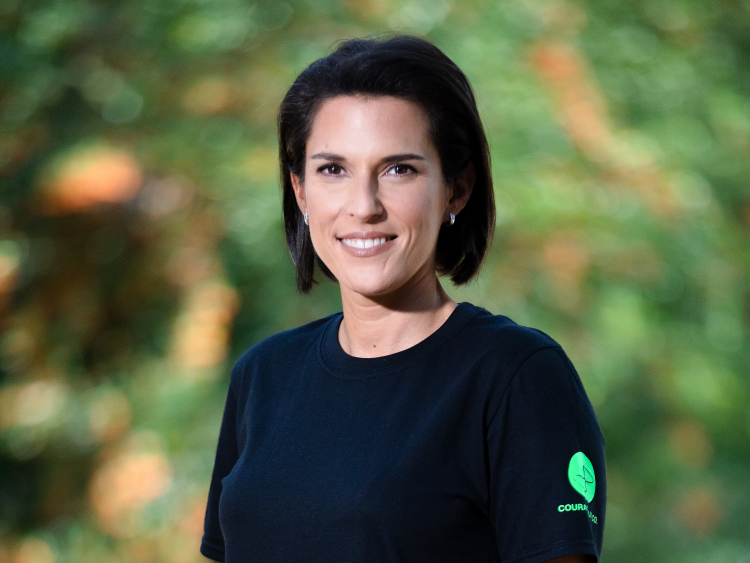Developing personal resilience – fastTrack Forum speaker preview

Michelle Elstein speaks about the superpowers to be gained through personal resilience, ahead of her presentation during Airmic’s fastTrack Forum on 16 September.
Michelle Elstein believes that by developing certain mindset manoeuvres she has gained the equivalent of superpowers. Co-founder of Courageous Co, she will address Airmic members at the fastTrack Forum on 16 September.
Ahead of her presentation, she spoke to Airmic News to explain how she increased her personal resilience and how anyone can achieve the same by training themselves to use the same mindset manoeuvres.
“Purpose is to equip people to achieve things they don’t know yet are possible. That is a mindset,” Michelle says.
Personal resilience is about managing the relationship you have with yourself to take ownership of how you respond to any given situation, in ways that can transform your options, she says. “If you have a healthier relationship with yourself, you can make better choices in any given situation.”
“You need to understand that relationship, and then choose your responses to the things that happen to you and around you. Of course, you can’t control everything, but you can control yourself, and that builds resilience.”
Two fundamentals are necessary to develop superpowers in this respect, she believes.
“The first one is to invest in the relationship with yourself, by choosing your mindset. Your mindset is really powerful. Knowing yourself and how to change your mindset is a superpower.”
Mindset manoeuvres can be as simple as switching around the words used to describe typical office situations, Michelle suggests.
For example, when lamenting a long to-do list on a Monday morning, by switching the common phrase “if only” to a more purposeful to “only if” it is possible to change outcomes on a regular basis, planning through a challenging situation more effectively.
“It’s as simple as putting something within your control, rather than beyond it.”
The second fundamental is about owning your own choices, says Michelle.
“You make your choices, and your choices make you. You need to acknowledge that you do have a choice, even if it feels like you don’t. You should own the choices you make as a result of your mindset.”
Being more proactive in those choices – and recognising the results – can be game-changing, she emphasises.
“Be purposeful in your relationships, and effective in the work that you do, make good things happen for yourself and to others, learn constantly, and you will start to feel much more in control. That is resilience and being a self-leader.”
Michelle’s own experiences have shaped her approach to teaching resilience. In 2015, she suffered a serious cycling accident that left her severely injured, facing a long and painful recovery.
“I didn’t spend much time thinking why did this happen to me. That’s not helpful. I asked myself ‘What can I take from this; what can I do with this? I can’t say I’m grateful I had an accident, but I can say I’m grateful for the choices I made and the way that I think as a result of it.”
Mindset manoeuvres for more positive decision-making were key, she suggests.
“Choose the positive. It’s about never thinking that things are ‘just happening’ to me. It means that if I don’t like what is going on, I think what should I be doing about it to improve my situation.”
Asked about increased attention to wellness since the Covid-19 pandemic, Michelle agrees that there has been – to some degree – a change of mindset from corporate decision-makers. Her presentations are most typically delivered to consumer sector and professional services audiences, while her own background is in financial services.
“Before the pandemic, I think wellness was regarded as an indulgence. Now to the most enlightened, it is regarded as critical. However, the pandemic was about coping and survival. Resilience is about coming back better than you were before.”
Fitness and training principles are useful for wellness, she notes.
“Athletes can only perform at their best if given the chance to recover from intense training and races. Too often in the corporate world, we are expected to sprint and sprint, but the idea of recovery is not part of the conversation. In some ways, it’s just catching up on what the rest of the world has known about high performance for some time.”
Michelle’s session in the fastTrack Forum is “Breakout A2: Developing personal resilience gives you superpowers” at 11.00am on 16 September.
